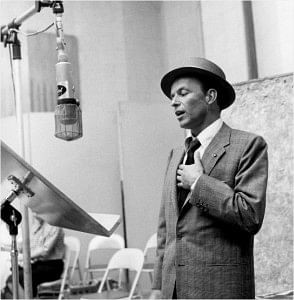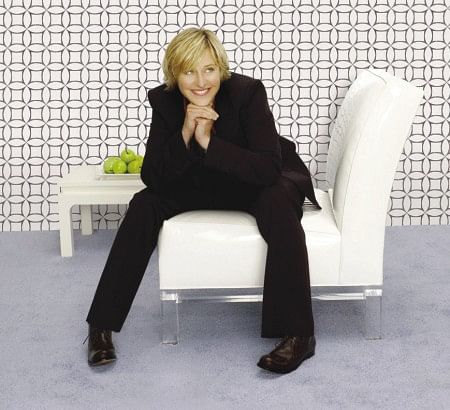The Evolution of Pop
 By Ahsan Sajid
By Ahsan Sajid
Pop music has evolved to what we know it as today through ways unrecognisable to the casual listener. It was birthed off minstrel shows, its first major composer being Stephen Foster. Minstrel shows were theatrical productions featuring singing, dancing and comedy sketches.
The songs composed were mostly sentimental parlour songs, featuring African instruments and dance routines. This was possibly the first time African culture was exploited for the benefit of an all-white audience. Nevertheless, Foster did more than most songwriters of his time to humanise the blacks he composed about; for example in Nelly Was a Lady, a plaintive, melancholy song about a black man mourning the loss of his wife.
The early history of pop music would take an entire article in itself to right about, but the pop music we know, the one that took a distinctive turn, came in the mid 50's, in America. In 1941 Billie Holiday recorded an English version of Gloomy Sunday, popularly known as the Hungarian suicide song (thusly named because urban legends tell of a number of people that committed suicide, unable to take the sheer amount of melancholia in the song, including the original composer himself). The record company did not approve.
This lead to Lady Holiday adding a final verse, making the entire happenings of the song a dream, somewhat ruining the original, making it sound forced and out of place. But this appeased the record company. And one could say modern pop music was born- neatly packaged, with the target audience in mind. We could complain about this lack of artistic integrity, or stunting of creative spontaneity, but we all know Lady Day is a Goddess among men, and this article is for pop fans such as yours truly.
The field of pop music developed tremendously during the 50's and 60's, as the increasingly low price of recorded music stimulated demand and greater profits for the industry; this was also around the same time hating the industry became fashionable in popular culture. Music marketing became lucrative, resulting in a number of mainstream pop stars whose popularity was previously unheard of. Many of the first such stars were Italian-American crooners like Dean Martin, Rudy Vallee, Tony Bennett, Perry Como, Frankie Laine and, most famously, the "first pop vocalist to engender hysteria among his fans"-- Frank Sinatra.
Before progressing any further let us make clear that pop music isn't necessarily the music you hear on VH1 or MTV today, from the likes of Britney Spears among others, and that there is a distinct difference between what we call popular music, and the pop genre that became popular most in the 90s. All though, the first bubblegum pop group also came from the 60's, The Monkees, chosen entirely for their ability to sell records over their talent. The more you know! Moving right on...
Rock and roll first entered mainstream popular music through a style called rockabilly, which fused the nascent rock sound with elements of country music. Black-performed rock and roll had previously had limited mainstream success, mostly because it was considered too suggestive by respectable black families, and white audiences.
At the time a white performer who could credibly sing rockabilly would be a success. Such a performer was found in Elvis Presley, who became one of the best-selling musicians in history, and brought rock and roll to audiences across the world. Talk about doing black music selfishly. But again, this article's not about complaining. Obvious names to follow would be Chuck Berry, Little Richard, Muddy Waters, Bo Diddley. It's interesting to note the origins of what now appears a predominantly white field.

This period saw the rise of new forms of pop music that achieved a more permanent presence in the field of popular music, including rock, soul and pop-folk. By the end of the 1960s, a development had completely changed popular music: the birth of a counterculture, which explicitly opposed mainstream music, often in tandem with political and social activism, especially in opposition to the Vietnam War, and the promotion of various hippie ideals.
The hippies were associated primarily with two kinds of music: the folk rock and country rock of people like Bob Dylan and Joan Baez, and the psychedelic rock of bands like Jefferson Airplane and The Doors. This movement was very closely connected to the British Invasion, a wave of bands from the United Kingdom who became popular throughout much of the 60's.
The first wave of the British Invasion included bands like The Zombies and the Moody Blues, followed by rock bands like the Rolling Stones, The Who and, most famously, changing the face of popular music, The Beatles.
The Beatles were originally known for songs that were virtually identical to classic black rock songs by Little Richard, Chuck Berry or Smokey Robinson. Later, as the counterculture developed, and The Beatles became more immersed in it, they began using more advanced techniques and unusual instruments, such as the sitar (George was directly inspired by Ravi Shanker) as well as more original lyrics.
The 1970s saw the development of one-hit-wonder bands, in the genre of soft rock, a kind of simple, unobtrusive and mellow form of pop-rock. From the psychedelic style and diverse sounds exibited by the Beatles, Byrds, and other groundbreaking groups, a progressive rock style emerged, exhibiting elements of fusion and classical instrumentation and influence, and a larger-scale, artistically-oriented approach to its works.
Concept albums and album rock went along with these trends, and key bands included The Moody Blues, Yes, Pink Floyd, and King Crimson.
In the 80's, music started to go all over the place. R&B returned, as did a different kind of British Invasion- bands influenced by the glam style of their British counterparts. This was also when alternative music rose, and the counter-culture truly became an underground scene and not a media cash-cow like that of the 60's.
The genres of punk rock and heavy metal were most closely associated with the United Kingdom in the 70's, while various American derivatives evolved later in the decade and into the 80's. Meanwhile, Detroit slowly evolved a series of electronic music genres like house and techno that later became a major part of popular music worldwide. Genres like Gothic rock and grunge were created, and an 'indie' scene was firmly established in the 80's.
While blasting Michael Jackson from the car stereo the other day, this writer began to wonder if he would ever do the same with Britney Spears or Backstreet Boys (the obvious names if one's talking about 90's pop). And the answer is no. Is this because pop music is no longer what it used to be? No, pointing fingers is no good, we're not complaining, every kind of music has its place.
But what happened to the pop we so loved? It's still there, and it's just harder to find. It was forced to run and hide by the industry, or maybe it went of its own accord. But in the lesser known independent bands you'll still find the charm pop music always held. And more, definitely more, pop in the 90's evolved by leaps and bounds. And it is where it belongs because only true fans will go through the trouble to uncover it. Others will remain ignorant, complaining about how music today just does not cut it.
Note : Readers are asked to send their feedback about pop music to ds:risingstars@ gmail.com
The magic of Ellen
By Mehvish Ali

For many teenagers in the US and even in other countries if you ask them about their favourite celebrity you are bound to hear the name Ellen DeGeneres. She's one of television's most familiar faces, best known for her TV show, 'the Ellen DeGeneres show.'
Starting off each episode with a catchy dance with the audience, 'The Ellen DeGeneres show' is a talk show featuring celebrity guests like Justin Timberlake, Simon Cowell, George Cloony etc. The stars come in to talk about their lives and work, and what makes her show stand apart from other talk shows is that she always has some fun activity planned for her guests, much to the amusement of her audience. Like that one time she prepared an AV of her golfing experience with Justin Timberlake, where she did more goofing off than golfing, and ended with the Timberlake teaching her his Sexy Back dance moves.
In another episode, she invited Robert Pattinson of Twilight and talked about how many people are crazy about his hair. They also spoke about Pattinson driving when he doesn't know how to drive. Ellen's response to that statement was “Then don't drive. Who's taking care of you man?” She also made him special underwear that said 'BITE ME' on the back, as a nod to his vampire flick.
Some of her guests perform live, such as 9-year-old Japanese guitar prodigy, Yuto Miyazawa from YouTube who played 'Crazy Train' for the audience. Each episode has something new and exciting, and sometimes, especially on Christmas, the audience get grand prizes TV, iPod and even a car!
DeGeneres is always packed with fun filled things to make it worth watching. You'll be rolling-on-the-floor-laughing for hours.
 A glimpse at Ellen's life:
A glimpse at Ellen's life:
* Ellen Lee DeGeneres was born on January 26th, 1958 to Betty Jane, a speech therapist, and Elliott DeGeneres, an insurance agent.
* She has one brother, Vance DeGeneres who is a musician and a producer.
* She's won twelve Emmys and various amounts of other awards for her charitable efforts and work.
* DeGeneres graduated from Atlanta High School in May 1976, after completing her first years of high school at Grace King High School in Metairie, Louisiana. She moved back to New Orleans to attend the University of New Orleans, where her major was in communication studies.
* Other than being an actress, stand-up comic and talk show host, she's had other work experiences such as a waitress, a bartender and a house painter.
* Her major influences include Steve Martin and Woody Allen.
* 'The Ellen DeGeneres Show' was first aired in September 2003.
DeGeneres came out openly as a lesbian in an appearance on 'the Oprah Winfrey show.' Since 2004, DeGeneres has been in a relationship with Portia de Rossi, former star of Ally Mcbeal and Arrested Development. They subsequently married in 2008. This has lead to a controversy about her show. Parents worry about DeGeneres as a role model for their daughters. One teen here complains her mother won't even let her watch the show for fear that she'll 'turn lesbian'. If you ask the teens themselves, though, her sexuality isn't even a consideration. Ellen brings in the laughs, and that's why they adore her.
